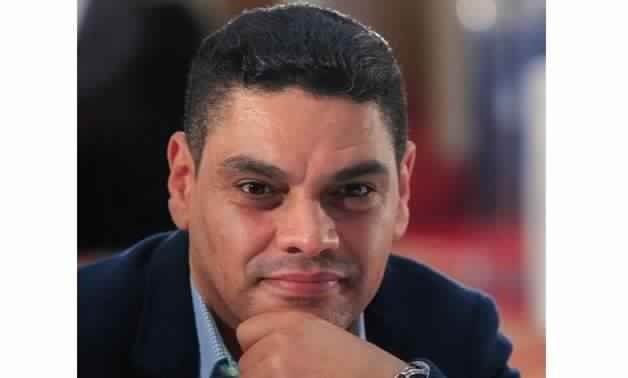
Dr. Moataz Abdel Fattah - File Photo
CAIRO-11 July, 2017: Terrorists usually choose between a number of basic alternatives: a limited attack on a frail target, a limited attack on a solid target, a massive attack on a frail target or a massive attack on a solid target.
Let us understand what is meant by the above:
A "limited attack" is an attack in which relatively modest destruction mechanisms are used, such as hitting by car or using a rifle, pistol, limited-impact bomb or even a knife.
A "massive attack" is an attack in which high-impact and highly explosive destruction mechanisms, such as machine guns, car bombs or high-destruction bombs are used.
A "frail target" refers to persons, buildings or vehicles not originally intended for the response to attack and are usually intended to serve civilians, such as hotels, private cars, public transport vehicles, aircraft or public institutions.
A "solid target" is a target in which a minimum of presumed security with the ability to exchange fire with terrorists or capture them before, during or after their direct attack.
So if we put these types in a table, the table has four cells.
Unorganized terrorists tend to be prone to limited and frail-targeted attacks, relying on their frequency and abundance, which propagates an atmosphere of insecurity and the primacy of publicity and heavy media usage, where media outlets and news outlets are used to spread and amplify events.
On the other hand, terrorist groups that are funded and trained by other intelligence services tend to use "massive attacks", either on solid targets or frail ones, but attacks on solid targets are driven by a desire to send a strong political message or used as a kind of vengeance on previous defeats.
It is clear, then, that political terror groups (formerly called “political Islam”) have decided to defy us and raise the level of terrorist attacks to a peak: a massive attack on a solid target while the limited attacks continue from one time to another, as if they were two parallel tracks.
The terrorist attack last Friday in the southern part of the Rafah civilian area could be classified as a massive attack against a highly fortified military unit. The magnitude of that attack led to the death of about 40 militants, and 26 soldiers were martyred, according to the armed forces.
This terrorist attack comes as the second largest terrorist attack since the one that took place in Sheikh Zowayed in July 2015. It is a targeted transfer from the Western Front on the Libyan border, which was the target of most of the attacks by political terror groups during the current year, after the eastern front has been largely calm during the past months as a result of the successful operations of the armed forces.
Choosing this solid goal with this massive attack comes as a direct, four-dimensional political message.
Firstly, it comes after the armed forces have declared the most important terrorist strongholds and sanctuaries to be cleansed, which is "Jabal al-Halal" in central Sinai with the control of southern villages in the cities of Rafah and Sheikh Zowayed that have historically been the theater of major operations.
Secondly, the attack is not only huge in terms of the number of participants (about 100 terrorists) and in terms of gear (modern SUVs, mortar shells, RPGs, anti-aircraft missiles and machine guns) but also an attack on a very solid target, the headquarters of the 103 Battalion of Shock troops. This is considered the strongest army battalion in Rafah and an important focal point for the control of the armed forces south of the city.
It is reported that the battalion is at a crossroad, through which it can cut off smuggling routes or launch attacks in the south of Rafah. Thus, it could be seen as the prelude to other more violent attacks if it had been without such huge losses for the terrorists.
Thirdly, the political message is made clear that the place of attack is directly located in the village of "al-Barth" of the "Tarabin" tribe, the biggest tribe in Sinai that leads the "Union of Tribes", which is supportive of the army in its fight against terrorism. That tribe formed among its youth armed groups in coordination with the state authorities to engage in fighting ISIL.
Hence, ISIL says that it is capable of penetrating or infiltrating the official tribal alliance in Sinai against terrorism and terrorists there, and that it may lose a battle but has not yet lost the war.
Fourthly, this process follows the successful diplomatic steps taken by Egypt to form an Arab coalition against the sanctum sanctorum of terrorism in the Middle East and its main financier in Qatar. As I predicted before, reprisals will become even more heated to weaken the morale of Egyptian soldiers and citizens, and embarrass the ruling political system by portraying its successes in fighting and blockading terrorism as partial and non-profound successes.
As Egyptians, we are required to continue to raise awareness among citizens and soldiers of the dangers of surrendering to political terror groups, and continuing to pressure all those who support terrorism either in words, actions, funding, sanctuary or recruitment.
"The army is defeated only when the first soldier says we are defeated and flees." That's what Napoleon said to define defeat in battle.
We will not be defeated, we will not allow anyone to say that we have been defeated, and we will not flee.
This is our response to terrorism and terrorists.
Long live Egypt and Egyptians.

Comments
Leave a Comment